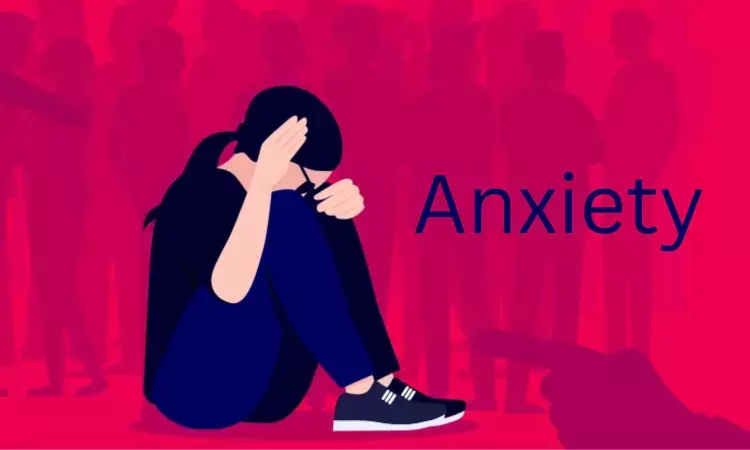- Home
- Medical news & Guidelines
- Anesthesiology
- Cardiology and CTVS
- Critical Care
- Dentistry
- Dermatology
- Diabetes and Endocrinology
- ENT
- Gastroenterology
- Medicine
- Nephrology
- Neurology
- Obstretics-Gynaecology
- Oncology
- Ophthalmology
- Orthopaedics
- Pediatrics-Neonatology
- Psychiatry
- Pulmonology
- Radiology
- Surgery
- Urology
- Laboratory Medicine
- Diet
- Nursing
- Paramedical
- Physiotherapy
- Health news
- Fact Check
- Bone Health Fact Check
- Brain Health Fact Check
- Cancer Related Fact Check
- Child Care Fact Check
- Dental and oral health fact check
- Diabetes and metabolic health fact check
- Diet and Nutrition Fact Check
- Eye and ENT Care Fact Check
- Fitness fact check
- Gut health fact check
- Heart health fact check
- Kidney health fact check
- Medical education fact check
- Men's health fact check
- Respiratory fact check
- Skin and hair care fact check
- Vaccine and Immunization fact check
- Women's health fact check
- AYUSH
- State News
- Andaman and Nicobar Islands
- Andhra Pradesh
- Arunachal Pradesh
- Assam
- Bihar
- Chandigarh
- Chattisgarh
- Dadra and Nagar Haveli
- Daman and Diu
- Delhi
- Goa
- Gujarat
- Haryana
- Himachal Pradesh
- Jammu & Kashmir
- Jharkhand
- Karnataka
- Kerala
- Ladakh
- Lakshadweep
- Madhya Pradesh
- Maharashtra
- Manipur
- Meghalaya
- Mizoram
- Nagaland
- Odisha
- Puducherry
- Punjab
- Rajasthan
- Sikkim
- Tamil Nadu
- Telangana
- Tripura
- Uttar Pradesh
- Uttrakhand
- West Bengal
- Medical Education
- Industry
Hypochondriasis associated with Alarming high Mortality Risk: JAMA

In a groundbreaking study conducted in Sweden, researchers have unveiled concerning findings regarding the mortality risk associated with hypochondriasis, commonly known as health anxiety disorder. Published in December 2023, the study delves into the all-cause and cause-specific mortality among a sizable cohort of individuals grappling with this often-underdiagnosed psychiatric condition. The study concluded that hypochondriatic individuals have an increased risk of suicidal deaths.
The study results were published in the journal JAMA Psychiatry.
Health anxiety disorder, commonly referred to as hypochondriasis, is a widely observed psychiatric condition that is often overlooked, characterized by a continuous fixation on the fear of having severe and advancing physical disorders. The mortality risk for individuals grappling with hypochondriasis remains uncertain.
The study, spanning data from January 1, 1997, to December 31, 2020, examined 4,129 individuals diagnosed with hypochondriasis, as per the International Statistical Classification of Diseases and Related Health Problems, Tenth Revision (ICD-10). This cohort was meticulously matched with 41,290 demographically similar individuals without hypochondriasis. The research aimed to uncover mortality rates and causes of death, bringing attention to the potential severity of health anxiety.
The study examined overall mortality and mortality related to specific causes as documented in the Cause of Death Register. Covariates taken into account encompassed birth year, gender, residence county, country of birth (Sweden or abroad), most recent recorded education, marital status, household income, and lifetime psychiatric comorbidities. Stratified Cox proportional hazards regression models were employed to calculate hazard ratios (HRs) and their corresponding 95% confidence intervals (CIs) for both overall and cause-specific mortality.
Results:
- A critical revelation from the study is that individuals with hypochondriasis face a significantly elevated risk of all-cause mortality compared to those without the disorder with crude mortality rates of 8.5 and 5.5 per 1000 person-years, respectively.
- After adjusting for sociodemographic variables, the hazard ratio (HR) was 1.69, with a confidence interval (CI) of 1.47-1.93, indicating a 69% higher mortality rate among individuals with hypochondriasis.
- This heightened risk extended to both natural (HR 1.60, CI 1.38-1.85) and unnatural (HR 2.43, CI 1.61-3.68) causes of death.
- Of particular concern is the stark association identified between hypochondriasis and an increased risk of death by suicide.
- The hazard ratio for suicide was notably higher among individuals with hypochondriasis (HR 4.14, CI 2.44-7.03), underscoring the urgent need for targeted mental health interventions.
The study emphasized the importance of adjusting for various factors, including sociodemographic variables, family income, and lifetime psychiatric comorbidities. Even after such adjustments, the heightened mortality risk associated with hypochondriasis remained evident, highlighting the robustness of the findings.
Further reading: Mataix-Cols D, Isomura K, Sidorchuk A, et al. All-Cause and Cause-Specific Mortality Among Individuals With Hypochondriasis. JAMA Psychiatry. Published online December 13, 2023. doi:10.1001/jamapsychiatry.2023.4744
In conclusion, this comprehensive cohort study illuminates the alarming mortality risk among individuals with hypochondriasis, sounding a clarion call for improved detection and access to evidence-based mental health care. The results underscore the significance of addressing mental health concerns and providing tailored interventions, especially for individuals grappling with health anxiety disorder. The study advocates for a proactive approach to mental health, aiming to mitigate the heightened risk of both natural and unnatural causes of death associated with hypochondriasis. This research sends a powerful message about the critical need to prioritize mental health and create a more supportive and resilient society.
BDS, MDS
Dr.Niharika Harsha B (BDS,MDS) completed her BDS from Govt Dental College, Hyderabad and MDS from Dr.NTR University of health sciences(Now Kaloji Rao University). She has 4 years of private dental practice and worked for 2 years as Consultant Oral Radiologist at a Dental Imaging Centre in Hyderabad. She worked as Research Assistant and scientific writer in the development of Oral Anti cancer screening device with her seniors. She has a deep intriguing wish in writing highly engaging, captivating and informative medical content for a wider audience. She can be contacted at editorial@medicaldialogues.in.
Dr Kamal Kant Kohli-MBBS, DTCD- a chest specialist with more than 30 years of practice and a flair for writing clinical articles, Dr Kamal Kant Kohli joined Medical Dialogues as a Chief Editor of Medical News. Besides writing articles, as an editor, he proofreads and verifies all the medical content published on Medical Dialogues including those coming from journals, studies,medical conferences,guidelines etc. Email: drkohli@medicaldialogues.in. Contact no. 011-43720751




